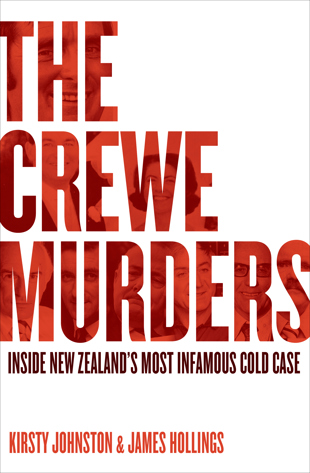Alexandra Nicole Wake reviews The Crewe Murders by Kirsty Johnston and James Hollings for Australian Journalism Review:
‘One does not normally expect to feel ashamed, or perhaps chastised, by a book, but in writing The Crewe Murders: Inside New Zealand’s Most Infamous Cold Case authors Kristy Johnston and James Hollings remind working journalists – and others – that lazy assumptions can result in terrible outcomes that reverberate in communities for decades.
That seems to be the clear theme of the book, with Hollings and Johnston writing towards the end of their work that ‘this story reminds us that justice, like democracy, cannot simply be delegated to the courts: it is ultimately the reasonability of us all’ (296).
The Crewe Murders centres on Harvey and Jeannette Crewe who were murdered in their farmhouse in New Zealand on 17 June 1970, although it was months before their bodies were discovered in the nearby Waikato River. Their toddler Rochelle was found alone in her cot, five days after the couple disappeared.
The task the authors set for themselves in revisiting the case was huge, but clearly not one that daunted Johnston, who is a respected NZ investigative journalist, nor Hollings, a respected NZ academic. The murders are not only New Zealand’s most infamous cold case, but the wrongful conviction of Arthur Thomas had also already been well documented with two trials, two appeals, hundreds of newspaper articles, several books, a film and a Royal Commission, with an eventual finding of police corruption.
Across sixteen chapters Johnston and Hollings take readers back to the scene of the crime, before chapter by chapter stepping through the murder, the trials, the pardon, the royal commission, the shortfalls and finally the court of last resort. So well written and researched is the co-authored book it is impossible to tell that there were two writers.
But by systemically reviewing everything that had been documented – and by adding new material – Johnston and Hollings outline some important lessons for the future, specifically the problem that occurs when people buy into a theory and refuse to allow it to be fully and transparently tested. As they write, the New Zealand legal and political system worked to stop ‘daylight shining on the mistakes’ that were made, ‘time and again in this story, officials were able to cloak their actions in secrecy’ (294).
In their investigation, Johnston and Hollings have created a gripping narrative which will appeal to lovers of true crime mysteries. Even if they do not provide a show stopping ending by ultimately declaring who did murder the Crewes, they do say who can be ruled out.’
Read the rest of the review here.


